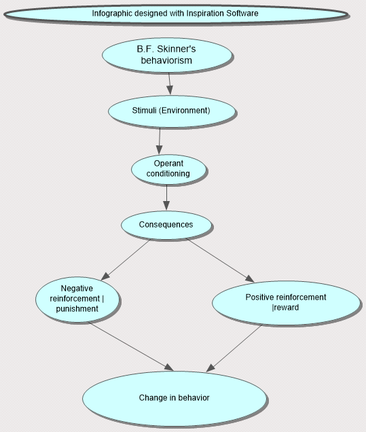WEST AFRICAN LEARNING CENTER
Behaviorism
|
About the Pros & Cons of behaviorism
In my early EFL class (English as a foreign language class), one of my teachers was more condescending and quick to humiliate students when they mispronounced a word or failed to repeat it properly. He mostly used drill practice, which is rooted in behaviorism: the belief that by repeating words, phrases or sentences, the learner will end up memorizing the language and then become fluent. His teaching style created a very tense atmosphere and led students to work hard to save face rather than focus on what was taught. It created a stressful environment where students' intrinsic motivation was severely affected. His negative reinforcement approach led most students to disdain English and even to avoid attending the class. Like Pavlov’s dog, those who enjoyed the drills were the ones who were enthusiastic in the class. And the teacher mostly resorted to those students as a focus of his class. Following the operant conditioning (B.F. Skinner), he sanctioned those who didn’t respond positively to his teaching practice through poor grades, humiliating comments and ignoring them totally in the class. On a totally opposite hand, I had another English teacher who was more attentive and supportive. Even though she used drills and other teaching techniques such as role plays, simulation, and translation practices, she never made a negative comment to a student. She was highly motivated and available to help students. She encouraged them to retake a test to improve their grades. Her positive reinforcement approach made her one my favorite teachers. These various experiences show that while behaviorism can help achieve positive results through positive reinforcement, it can also be a serious barrier to learning, especially when it creates an unfriendly environment where the learner doesn’t feel safe and valued. It doesn't open a way for creativity as repetition and imitation are central to the learning process. Emphasis is put on what to learn, and very limited to no attention is paid to how the learner actually learns. Yet, as humans, we want to be part of the learning process, not just repeating like parrots. Different learners come in the classroom with a variety of experiences, skills and learning styles. The role of the instructor is to accompany the learner in the process of knowledge acquisition and skill development by creating a friendly, safe and constructive environment. Works cited David, L. (January, 2017). “Behaviorism” in Learning Theories. Retried from November 18, 2017 https://www.learning-theories.com/behaviorism.html. Mcleod, S. A. (2015). Skinner- operant conditioning. Retrieved from November 18, 2017, https://www.simplypsychology.org/operant-conditioning.html |

